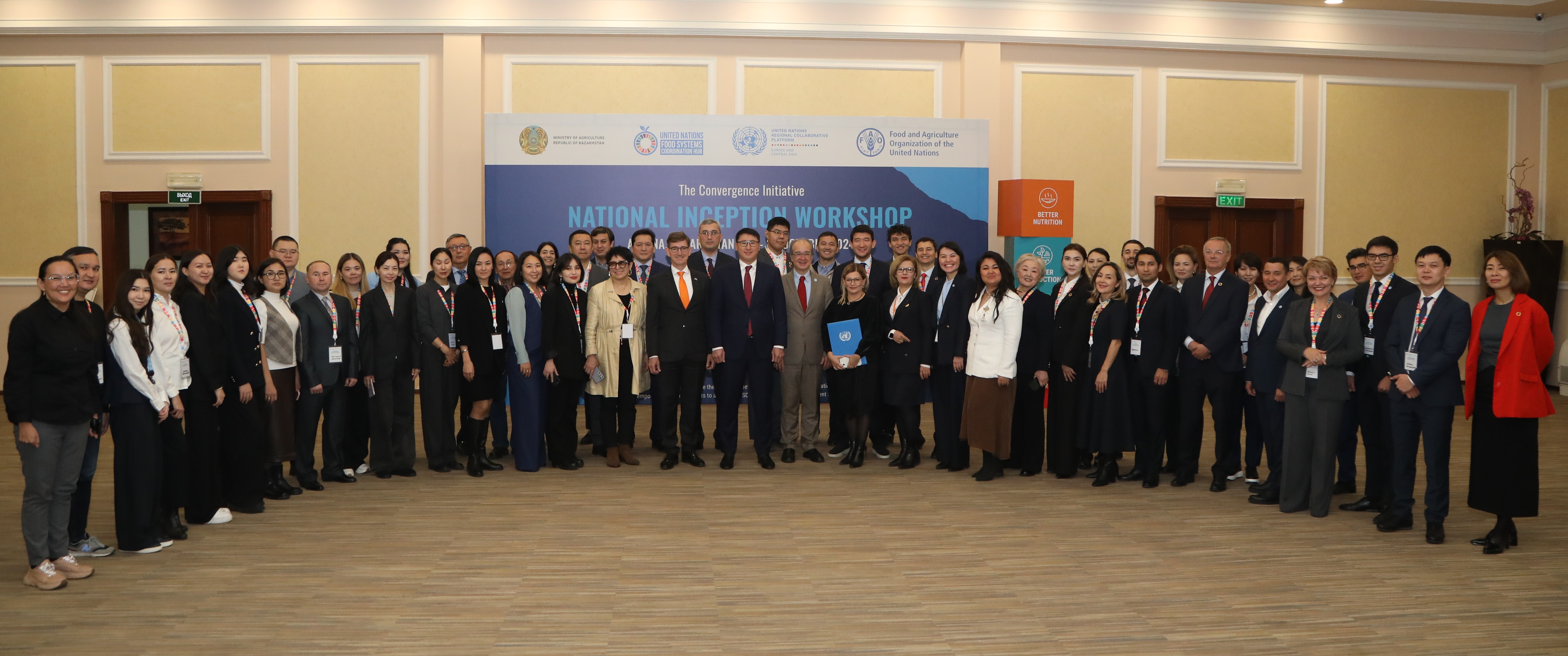SEED FUNDING JOINT PROGRAMMES
Rwanda
Resilient Food Systems: Enhanced Value Chain and Post Harvest Management





PROJECT TITLE | Resilient Food Systems: Enhanced Value Chain and Post Harvest Management |
| Context | Food systems transformation is embedded in several national policies in Rwanda, including the National Transformation Strategy, the Strategic Plan for Agriculture Transformation, the National Environment and Climate Change Policy. In 2021, Rwanda developed its National Pathway, which highlights four priority areas for the country towards 2030: ensuring food security and nutrition for all, while increasing demand for healthy diets; enhancing the environmental sustainability of food systems; improving livelihoods for farmers and all workers in food systems while building resilience to shocks; promoting inclusion of women and youth in food systems, including through enhanced financial opportunities. |
| PUNOs | FAO, WFP, IFAD |
| Contribution to SDGs | SDG 1 No Poverty; SDG 2 Zero Hunger; SDG 8 Decent Work and Economic Growth; SDG 13 Climate Action |
| Contribution to other SDG transitions | Decent Jobs and Universal Social Protection; Energy Access and Affordability |
| Duration | July 2024 – June 2025 |
| Expected financial leverage | $ 3,070,000 |
| Alignment with SG Call to Action | Policy integration; Food systems governance; Research, data, technology and innovation; Inclusive and participatory design; Private sector engagement |
| Outcomes | The JP leverages on improved post-harvest management as a strategic approach to simultaneously reduce food loss, improve incomes, and boost food availability. The JP promotes the economic integration of youth-led MSMEs and builds linkages with partners and initiatives focused on nutrition and food security to connect the dots between food production, processing and consumption. |
| Partners |
|
| Outputs |
|
Kazakhstan leads as first pilot country for the Convergence Initiative

Astana, Kazakhstan – A two-day workshop took place in Astana, Kazakhstan, on October 23-24 to launch the National Inception Workshops for the Convergence Initiative, marking a significant step in aligning food systems transformation with climate action.
As the first pilot country for the Convergence Initiative, Kazakhstan is set to play a crucial role in integrating these agendas to advance progress toward the Sustainable Development Goals (SDGs) and commitments under the Paris Agreement.
The workshop, organized in collaboration with the UN Food Systems Coordination Hub, Kazakhstan’s Ministry of Agriculture, the UN Issue-Based Coalition on Sustainable Food Systems (IBC-SFS), and the Food and Agriculture Organization (FAO), brought together key food systems actors, including policymakers, technical experts, private sector leaders, youth, and civil society. This diverse group united to develop a practical roadmap for action, highlighting Kazakhstan's leadership in modernizing agricultural systems while addressing the broader climate crisis.
The Convergence Initiative builds on two key food systems milestones: the UN Secretary-General’s Call to Action for Accelerated Food Systems Transformation (UNFSS+2) and the COP28 UAE Declaration on Sustainable Agriculture and Climate Action. These initiatives underscore the importance of integrating food systems transformation with updates to Nationally Determined Contributions (NDCs) and National Adaptation Plans (NAPs) to effectively tackle climate change.
“We have a unique opportunity to lead towards carbon neutrality by 2060 and a green economy in Kazakhstan. Our first step is to enhance policy coherence, addressing challenges like water scarcity, land degradation, and inclusive policies that empower all stakeholders—especially women farmers. Let’s modernize our agricultural sector for sustainable, resilient agri-food systems!” said Katarzyna Wawiernia, Acting UN Resident Coordinator in Kazakhstan.
Building on initiatives like the Strategy for Achieving Carbon Neutrality by 2060 and the Concept of Agro-Industrial Complex Development until 2030, climate-resilient practices remain an urgent priority for the country.
Raimund Jehle, Co-Chair of the UN Issue-Based Coalition on Sustainable Food Systems (IBC-SFS), emphasized that "the transformation we seek is not simply an agricultural issue – it is a systemic challenge. We need transformative change for sustainable food systems that ensure food security and access to healthy diets for all, integrating climate resilience, biodiversity protection, public health, and economic development, especially for rural communities and women."
Defining Kazakhstan’s convergence strategy
The workshop set the basis for two key outcomes: the Draft Convergence Action Blueprint (CAB) and the establishment of the Convergence Group. The CAB provides a strategic framework tailored to Kazakhstan, integrating NDCs, NAPs, and the national food systems transformation pathway to optimize resources and address critical issues. The Convergence Group will ensure effective implementation, stakeholder engagement, and ongoing strategy refinement. This effort solidifies the Convergence Initiative, aligning Kazakhstan’s goals with global targets and advancing progress toward the SDGs and Paris Agreement.
Nazgul Khatepova, Food Systems National Convenor of Kazakhstan, highlighted that the Ministry of Agriculture is hosting its first-ever event dedicated to the food systems and climate agenda. She emphasized that the FAO and the UN Food Systems Coordination Hub can rely on Kazakhstan as a steadfast partner in advancing food security and sustainable development, with a clear commitment to addressing climate priorities.
Stefanos Fotiou, Director of the UN Food Systems Coordination Hub, highlighted the importance of Kazakhstan's role as a pioneer in this initiative. "Kazakhstan has taken an ambitious step forward as the first pilot country of the Convergence Initiative in this region. This workshop is not just a meeting, but the foundation for long-term systemic change that will ripple across food systems and climate actions in ways that inspire others globally."
As Kazakhstan embarks on this transformative journey, UN Food Systems Coordination Hub, UN IBC SFS, FAO and its partners remain committed to supporting the country in creating sustainable, resilient and inclusive food systems, addressing climate challenges, and empowering all stakeholders—especially those most vulnerable.
